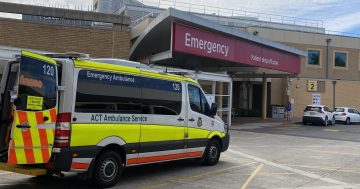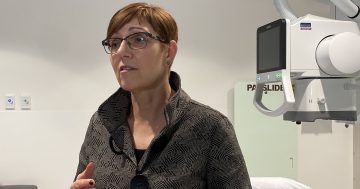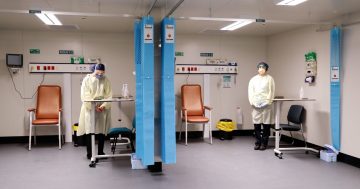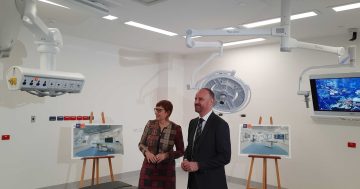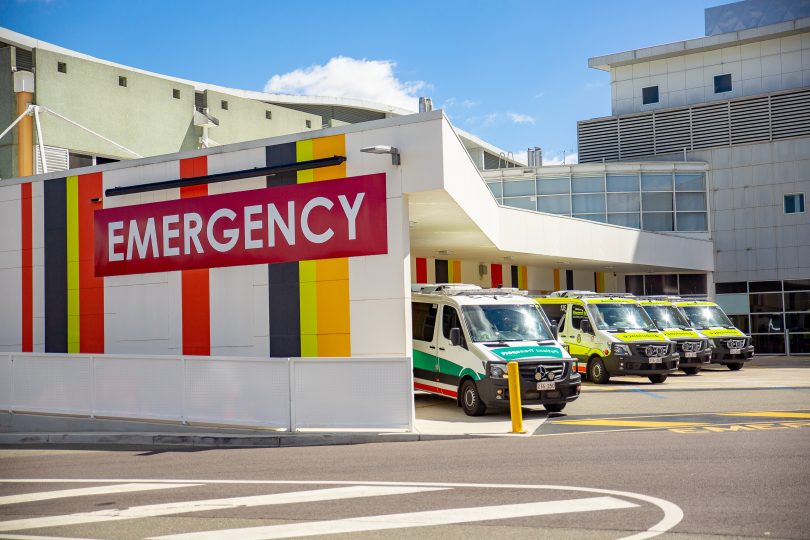
Changes to improve patient flow at Canberra’s emergency departments are continuing to be implemented. Photo: File.
ACT emergency department waiting times improved in the latest performance report, but the queue for elective surgery continues to lengthen, partly due to the COVID-19 lockdown disrupting services.
ACT Health has released its Quarterly Performance Reports for Q4 2020-2021 (April-June) – which was delayed due to COVID-19 – and Q1 2021-2022 (July-September).
ACT Minister for Health Rachel Stephen-Smith said the data released was significantly affected by COVID-19 and it is therefore difficult to make comparisons between quarters.
The Q1 report shows that almost half (49 per cent) of emergency department patients were treated within the clinically recommended time for their urgency (triage) category, up from 42.2 per cent the previous quarter.
There were increases across all categories, and median waiting times fell across all categories.
But there were more than 5000 fewer presentations, or 12.4 per cent (35,513), than the previous quarter (40,548), which had jumped 7.6 per cent.
In Q4 2020-2021, only 42.2 per cent of patients were seen on time, down from 48.1 per cent in the previous quarter.
Ms Stephen-Smith said the Q1 improvement was delivered even in the midst of increased COVID-19 case numbers, community transmission and lockdown that put significant pressure on emergency departments, including through increased infection prevention and control measures.
“Even with a nine per cent increase in the number of presentations to emergency departments across the full year of 2020-2021, compared with 2019-2020, almost the same percentage – 56.6 per cent in 2020-2021, compared with 57.6 per cent in 2019-2020 – were seen, treated and discharged, or admitted to hospital within four hours,” she said.
Ms Stephen-Smith said both Calvary Hospital and Canberra Hospital continue to implement changes to improve emergency department patient flow, including direct admissions into wards and rapid assessment by senior clinicians.
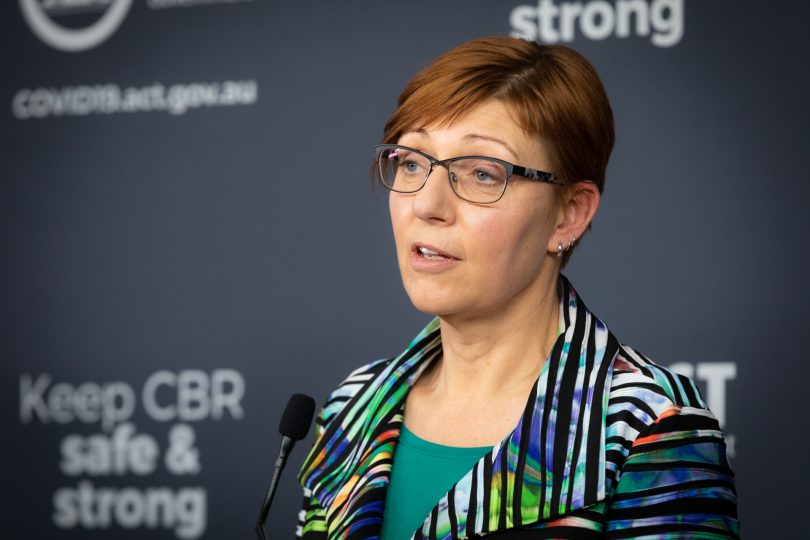
ACT Minister for Health Rachel Stephen-Smith says there is still more to do to improve emergency department patient flow. Photo: Michelle Kroll.
But she concedes there is still more work to do.
A record of 15,324 elective surgeries were performed across the ACT in 2020-2021, significantly more than the previous record of 14,015 achieved in 2018-2019.
“This helped us catch up on the elective surgeries that were postponed due to COVID-19,” said Ms Stephen-Smith.
Almost 4000 elective surgeries were performed in Q4 2020-2021, an increase of 6.3 per cent on Q3 2020-2021.
But the COVID-19 lockdown eroded these gains, impacting the ability of the public hospital system to deliver elective surgeries, including reduced access to clinicians from Sydney.
In Q1 2021, elective surgeries were down nearly eight per cent to 3650, while 4362 were added to the waiting list, and the number of overdue patients rose to 1031 – 258 more than the previous quarter.
Ms Stephen-Smith said the government remains committed to delivering 14,800 elective surgeries this year and 60,000 over four years.
Walk-in centre presentations slumped by nearly a third between Q4 2020-2021 (22,509 presentations) and Q1 2021-2022 (13,877 presentations), but Ms Stephen-Smith said that overall the reports show the centres continue to grow in popularity with Canberrans who need to access care close to home.
She attributed the fall to the COVID-19 pandemic, the temporary repurposing of the Weston Creek Walk-In Centre in Q1 2021-2022 and the redeployment of staff from the Inner North Walk-in Centre on several occasions, which reduced capacity.
“The percentage of people presenting to the walk-in centres being treated on the spot has remained at almost 80 per cent, which is a fantastic result,” said Ms Stephen-Smith. “The wait times at all the walk-in centres decreased between Q4 2020-2021 and Q1 2021-2022.”
Ms Stephen-Smith said the 2021-2022 ACT Budget is delivering significant investments in new infrastructure and more doctors, nurses, allied health care workers and support staff to boost capacity across our hospitals and community based services.
This includes $23 million for Canberra Hospital’s emergency department and a further $39 million to boost emergency surgery capacity.
At Calvary Public Hospital, the $16 million investment to meet increased demand on Canberra’s northside includes the establishment of 24/7 medical imaging, building on the 50 per cent expansion of Calvary’s emergency department treatment spaces completed in 2020.
“Rollout of these projects has already started with the launch of the Acute Medical Unit at Canberra Hospital and 24/7 medical imaging at Calvary Public Health from January 2022,” said Ms Stephen-Smith.












